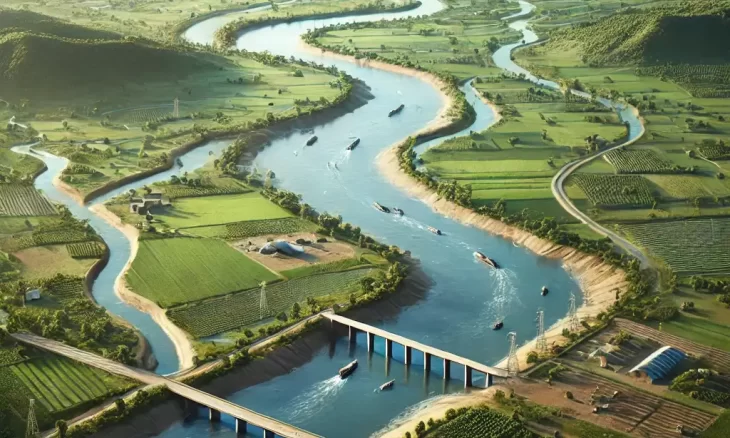
The engineering, procurement, and construction (EPC) sector is on the cusp of a significant expansion, with an ICRA study projecting a staggering Rs 2.0 lakh crore in business opportunities over the next decade. This influx is driven by the completion of four priority interlinking river (ILR) projects, which promise to reshape the landscape of irrigation in India. Of this substantial figure, around Rs 80,000 crore is anticipated to be awarded in the next four years to companies specializing in large-scale irrigation initiatives.
The National Water Development Agency (NWDA) has earmarked 30 ILR projects, comprising 16 links in peninsular rivers and 14 in Himalayan rivers. The funding for these ambitious undertakings will come primarily from the Government of India, which will cover 60 per cent of the costs, while State Governments will manage the remaining share. This robust governmental commitment is highlighted by a notable increase in the budget allocation to the Ministry of Jal Shakti (MoJ), which has soared to over Rs 78,000 crore for FY2025—a remarkable 69 per cent CAGR over the past six years, largely fueled by investments in the Jal Jeevan Mission.
In a detailed overview of the ILR initiatives, Chintan Lakhani, Vice President and Sector Head – Corporate Ratings, ICRA, stated: “The four-priority links are just the beginning of the decade-long plan of the ILR project implementation. While the share of these projects as a percentage of budgetary allocation to the ministry is currently minimal, at ~5 per cent i.e. Rs 3,908 crore, it is expected to increase as more projects get approval and awarding/construction gains momentum. Being 60 per cent funded by the Central Government, the counterparty risks and funding risks for these projects are largely mitigated, though the balance 40 per cent exposure to State Government finances could be an overhang.”
Among the identified priority projects, the Ken Betwa, Kosi-Mechi, Parbati Kalisindh Chambal, and Godavari-Cauvery links are set for expedited implementation. ICRA estimates that the total cost for these projects will amount to Rs 2.6 lakh crore by FY2035. The Godavari-Cauvery project is the most extensive, accounting for 45 per cent of the cumulative project cost, while the Kosi-Mechi link is the smallest at just 4 per cent. The Ken Betwa project, which has already begun implementation, represents 21 per cent of the cost for these priority links.
Looking ahead, Lakhani highlighted the importance of collaboration among states for the successful execution of these projects. “While the Parbati Kalisindh Chambal and the Godavari-Cauvery links are in advanced stages of finalisation of the detailed project reports, consensus building among states remains critical for timely implementation of these projects. ICRA anticipates the Parbati Kalisindh and Godavari-Cauvery projects to start from FY2028 and FY2029, respectively, based on the current status of the projects. The Ken Betwa and Kosi Mechi projects are expected to lay the foundation for the implementation of these larger and more complex projects. With the announcement of the financial support of Rs. 11,500 crore towards various flood control and irrigation projects for Bihar in the FY2025 Union Budget, ICRA expects the Kosi Mechi to start contributing to the order book in the next 12-15 months.”
As the Indian Government accelerates its focus on enhancing water management and irrigation systems, EPC players find themselves positioned to seize the burgeoning opportunities presented by these ILR projects, paving the way for significant advancements in the nation’s infrastructure.

